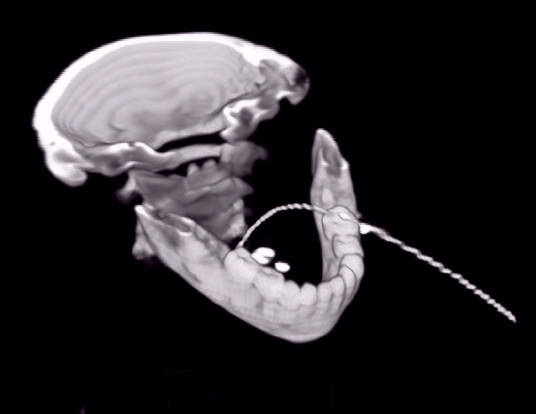- Home
- About us
- Herbalism
- Product
- Disease Category
- Cardiovascular Disorders
- Endocrine System Disorders
- Eye Disorders
- Gastrointestinal Tract Disorders
- Gynaecological Disorders
- Hair Disorders
- Male Sexual Dysfunction
- Musculoskeletal Disorders
- Nervous System Disorders
- Respiratory System Disorders
- Skin Disorders
- Urinary System Disorders
- Venereal Diseases
- Dealer
- Catalogue
- Price List
- Faq's
- Contact us
Disease
- Cardiovascular Disorders
- Endocrine System Disorders
- Eye Disorders
-
Gastrointestinal Tract Disorders
-
- ■Abdominal Distention
- ■Adiposity
- ■Anorexia Nervosa
- ■Biliousness
- ■Bloating
- ■Burning Sensation in the Chest
- ■Cellulite
- ■Cirrhosis
- ■Colic
- ■Colitis
- ■Constipation
- ■Constipation
- ■Croup
- ■Cystitis
- ■ Dandruff
- ■Depressed Libido
- ■Depression
- ■Diabetes Mellitus
- ■Diarrhoea
- ■Diverticulitis
- ■Dysentery
- ■Flatulence
- ■Gastritis
- ■General Debility
- ■Halitosis (Bad Breath)
- ■Heartburn
- ■Heaviness after Meals
- ■ Hepatitis
- ■ Hepatomegaly
- ■Hyperacidity
- ■Indigestion
- ■ Intestinal Worms
- ■Irritable Bowel Syndrome (IBS)
- ■Jaundice
- ■ Lack of Appetite
- ■Liver Dysfunction
- ■Motion Sickness
- ■Nausea
- ■Obesity
- ■ Piles
- ■Sluggish Liver
- ■Spleen Dysfunction
- ■Splenitis
- ■Splenomegaly
- ■Stomachache
- ■Travel Sickness
- ■ Ulcers
- ■Vomiting
- ■Weakness of Digestive System
- ■Oedema
-
-
Gynaecological Disorders
-
- ■Amenorrhoea
- ■Dysmenorrhoea
- ■Frigidity
- ■Hysteria
- ■Infertility
- ■Leucorrhoea
- ■Menopausal Changes
- ■Menorrhagia
- ■Metritis
- ■Metrorrhagia
- ■ Osteoporosis
- ■ Premenstrual Syndrome (PMS)
- ■Prolapse of Uterus
- ■Sterility
- ■Suppressed Post-partum Lactation
- ■Under-developed Breasts
- ■Uterine Weakness
- ■Vaginal Pruritus
-
- Hair Disorders
-
Male Sexual Dysfunction
-
- ■Azoospermia
- ■Depressed Libido
- ■Erectile Dysfunction
- ■Exhaustion after Coitus
- ■Hydrospermia
- ■ Infertility
- ■Lack of Penile Growth
- ■Lassitude (Lethargy)
- ■ Nocturnal Emission
- ■Oligospermia
- ■Poor Erectile Power
- ■Premature Ejaculation
- ■ Seminal Debility
- ■Sexual Debility
- ■Sexual Neurasthenia
- ■Sexual Weakness in the Elderly
- ■Spermatorrhoea
- ■Weakness of Male Sexual Organ
- ■Sterility
-
- Musculoskeletal Disorders
-
Nervous System Disorders
-
- ■Amnesia (Impairment of Memory)
- ■Cerebral Atony
- ■Epilepsy
- ■Haemorrhage
- ■ Headache
- ■Hyperactivity in Children
- ■ Infantile Epilepsy
- ■Insanity
- ■Insomnia
- ■Lack of Concentration
- ■Melancholia
- ■Migraine
- ■Muscular Tremor
- ■Nervous Breakdown
- ■Nervous Debility
- ■ Nervousness
- ■Neuralgia
- ■Premature Aging
- ■ Restlessness
- ■Schizophrenia
- ■Senility
- ■Speech & Language Disorder
- ■ Stress
- ■Tension
- ■Weakness of Nerves
- ■Paralysis
- ■Chorea
- ■ Facial Paralysis
- ■Sore Throat
- ■Spasmodic Cough
-
- Respiratory System Disorders
- Skin Disorders
- Urinary System Disorders
- Venereal Diseases
Search
Disease
- Home/
- Disease Details

Calcium Deficiency
Deficiency of calcium in the body.
Persons most commonly affected: Mostly women and children.
Organ or part of body involved: Teeth and Bones.
Symptoms and indications: Osteoporosis, insomnia, tetany, premenstrual cramps and hypertension. Low calcium intakes have also been linked to premature births and some forms of cancer, including colon and breast cancer.
Causes and risk factors: Lifestyle factors can reduce calcium in bones. Some of the factors that can reduce calcium in your bones include: High salt diet, more than six drinks per day of caffeine-containing drinks - for example coffee, cola and tea, excessive alcohol intake, excessive intake of phosphate-containing foods that do not contain calcium, for example soft drinks, very low body weight, very high intakes of fibre (more than 50g per day, from wheat bran), low levels of physical activity, low levels of vitamin D - this may be an issue for people who are housebound or for women who cover their bodies completely when they are outside, as they do not get enough sunlight on their skin.
Prevention: Good sources of calcium include dairy foods and leafy green vegetables, although calcium from milk and milk products is more easily absorbed and present in greater amounts. People at different life stages need different amounts of calcium - young children, teenagers and older women all have greater than average requirements. Soy, tofu. fish, nuts and seeds are also good sources of calcium.
Subscribe to our newsletter
Address
-
40, 153, Meston Rd, Mulganj Chauraha, General Ganj, Kanpur, Uttar Pradesh 208001
-
+91-9335-790-653
